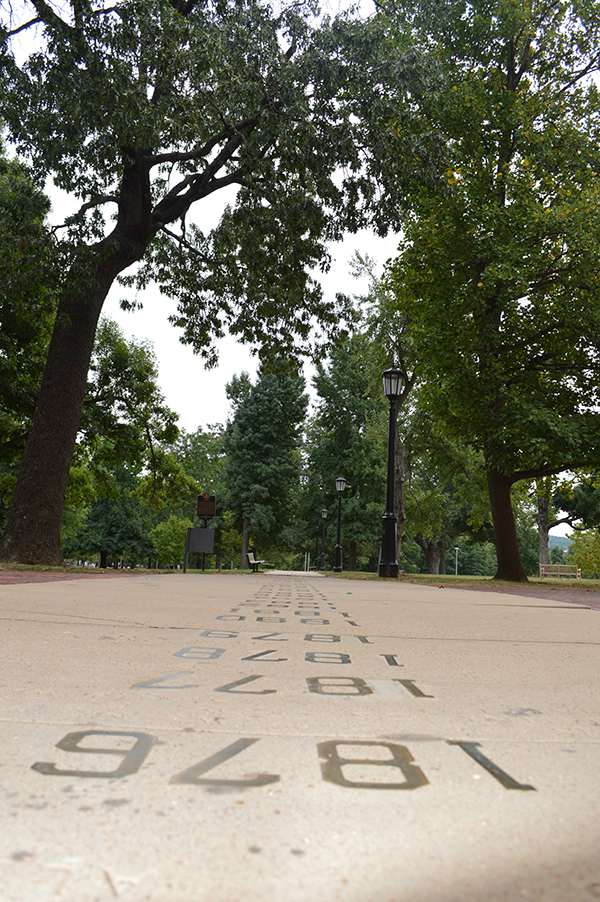Student interns for the U of A office for sustainability, in collaboration with the Center for Advanced Spatial Technology, are evaluating the ecosystem services provided by the urban forest of the Fayetteville campus.
Ecosystem services are the benefits that humans receive from Earth's ecosystems; they are the foundation of all human civilizations and economies. There are a number of critical ecosystem services provided by urban forests: atmospheric carbon sequestration, air pollution mitigation, direct cooling of structures and surfaces through shading, interception of rainwater runoff, increased infiltration of surface water to groundwater, habitat for wildlife (especially endangered songbirds), and critical social and spiritual value to people.
Urban forests differ from rural and wild forests in a number of ways.
For example, urban forest canopies are typically much less dense, resulting in faster growth rates for urban trees. Root zones of urban trees are often constrained by compaction zones and structures, limiting their root development. Urban forests are managed systems; they are created and maintained by people to achieve certain purposes.
In spite of these challenges, tree species commonly found in an urban forest can live for centuries. Residents develop strong affinity for these trees; they connect people to their past and their future. It is this deep connection that can make them difficult to manage.
Urban forests have not always been planned properly. Planting the wrong species too close to a building, under power lines or over water lines can result in the need to redesign those canopies. In addition, priorities for ecosystem services change over time. Understanding these driving forces is critical for managing the urban forest ecosystem for maximum human and ecological benefit.
Benchmarking of ecosystem services provided by these trees allows better management of urban forests to increase those services. Student interns in the office for sustainability are working with U of A facilities management department and the Center for Advanced Spatial Technology to inventory the ecosystem services provided by the campus urban forests, identify spatial density of those services, and develop a strategy for optimizing them.
The office for sustainability is focusing on carbon sequestration, urban heat island impact reduction, and water cycling. Carbon sequestration analysis will be included in the U of A Annual Climate Change report. The Natural Systems Working Group, part of Provost Sharon Gaber's Sustainability Council, will provide technical support and guidance for the project.
Contacts
Marty Matlock, Executive Director
Office for Sustainability
479-575-6712, mmatlock@uark.edu
